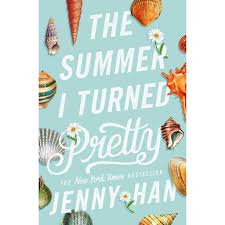The Summer I Turned Pretty parents guide assists families with the awareness of the content viewed by the children in the series or read in the book. This is the general information that parents should know. The Summer I Turned Pretty, which was developed based on the novels of Jenny Han, is teenage-popular. It deals with romance, maturation, and family connections in a resort house. So, taking into consideration its topics and way of presentation, this guide states the main facts about safe viewing decisions.
What is the summer I turned pretty all about?
The Summer I Turned Pretty is a coming of age story. The story is about a teenager Belly, who is vacationing in a beach house of a family friend. She goes through complex emotions, first love and changing relationships.
At the center of the six-episode series is the thread of love between Belly and two brothers, Conrad and Jeremiah, and romantic conflict. It deals with the family life, divorce of parents, sickness and friendship.
The series portrays emotional development, heart-aches, and the need to belong with the help of the short episodes. The major themes presented here are independence, romance, and the difficulties of adolescence.



Is the summer i turned pretty appropriate?
A lot of parents doubt whether The Summer I Turned Pretty is appropriate for children to read and watch. Its authors wanted it to suitable for primarily a teen audience. However, romantic elements, emotional stress and things such as underage drinking are present in the story.
The book and TV series have the same age rating of TV-14 or 14+ in English speaking countries. This implies that there is certain content that cannot be used by children below fourteen. Parents ought to be informed about kissing scenes, relationship dramas and underage drinking in beach parties.
Certain themes, such as family strife, sickness, and loss, are done with emotional truthfulness. These episodes can be upsetting to sensitive audiences. There is some rough language, a few covert innuendos, and allusions to sexuality, but it is not too explicit.
Notably, the tone is not solemn or explicit, though, the scenes may turn severe emotionally. Difficult emotions are balanced with the help of humorous moments, peer bonding, and summer setting. But the net impact of romance, conflict, loss and personal revelation would be insurmountable to less mature audiences.
In the end, The Summer I Turned Pretty would be most appropriate to mature middle schoolers and high school teens. Every family must evaluate the comfort level they have with these topics, and it may be viewed or discussed together with the story events and teachings.
Use parenta controls to filter out inappropriate content.
Why is the summer i turned pretty rated 14?
The Summer I Turned Pretty managed to receive 14+ rating on the basis of several important factors.
- Romantic themes: Characters have their first crush, love triangle and complex feelings that result in passion kissing and emotional statements.
- Innuendo and sensuality: Scenes of teens skinny-dipping, changing clothes or showing interest in intimacy but no explicit nudity.
- Profanity: Predominantly using casual swearing and occasionally the more serious swearing demonstrates the realistic teenage discussion.
- Substance use: Youngsters engage in underage drinking, cigarette smoking, and are sometimes under the influence of marijuana, particularly at parties where they are not supervised.
- Emotional intensity: Pre-teens might have a difficult time with heavy issues such as divorce, illnesses and death of parents, and grief.
These aspects produce a life-like depiction of teen life but it demands the viewers or readers to be emotionally ready. TV-14 clearly indicates that parents should consider the maturity level of children before allowing them to watch or read it unsupervised.
The summer I turned pretty parents guide
Age rating
- Both book and TV rating is 14. So, the film is not advisable for children below the age of 14 years without the guidance of their parents.
- International ratings: The age recommendation is similar in Canada, Australia, the UK, and Europe.
Content warnings
Violence and scariness
- Bodily abuse is not common, yet exists. Main characters engage in fistfights or shoving matches when they are highly emotional.
- Parental quarrels, screaming and breakdowns are scenes that occur and are depicted realistically.
- The focus of the story is emotional illness and its effects, which offer instances of despair and fear.
- No on screen or gory material, no horror or supernatural menaces.
Sex, romance, and nudity
- Much of the story is fuelled by teenage romance. Belly dates with the Fisher brothers, confesses, and even kisses them.
- Multiple kissing scenes. Some are ardent, though not picturesque or descriptive.
- Sexuality, attraction and body image are sometimes discussed.
- Short pictures or wordings of characters in swimsuits, changing or in underwear, always in the background of beach life or coming of age experience.
- Party scenes can either refer to characters spending the night together, although nothing is directly presented on screen or detailed in explicit detail.
Language and profanity
- There is a lot of swearing, and words that are not appropriate to young children.
- Peer interactions use slang, name-calling, and ribbing to mimic real teenage conversations.
- No hate speech or inhuman language, but the arguments can become heated.
Alcohol, drugs, smoking.
- Teenagers also drink alcohol at beaches and other events.
- A few scenes show marijuana, including homemade equipment at parties.
- Cigarette smoking is also there among the teens and adults.
- There is little mention of drug use, but substance use is romanticized, and the results of social tensions may easily ensue.
Mature themes or topics
- Key plot lines include divorce, separation of parents and the problems of blended families.
- Disease, especially cancer, determines the emotional process of both families.
- Loss and unresolved grief often appear, providing a realistic backdrop to adolescent struggles.
- There is romantic rivalry and jealousy, which add drama, however, it also makes clear the significance of real communication and emotional honesty.
- There is a slight dark humor and sarcasm. However, it is never applied to serious subjects and has no intent to belittle others.
- It also has scenes where the characters have debates about body image problems and subtle sexism, typically in terms of self-reflection or criticism by peers.
Good messages and good examples.
- This book and series emphasize friendship, compassion, and loyalty.
- The growth of many characters is a result of hardship as they learn to deal with disappointment, loss and change.
- The series appreciates open communication, limits, and seeking the assistance of the adults or peers.
- Both chosen and biological family ties are celebrated and tested, reminding readers and viewers of the importance of relationships.
- Themes are strong in resilience, empathy and understanding, and role models exist both on the parental and the teenage level.
Educational value
- The Summer I Turned Pretty explores the influences of family changes, disease and loss on children and adolescents.
- It creates opportunities of discussing emotional well-being, coping strategies and value of healthy communication.
- The varied friendship and family set-ups offer learning experiences about respect, tolerance, and self-worth.
- Families can use the story to discuss independence, responsibility, and making good choices.
- It does not involve direct historical or academic learning, however, the emotional intelligence factor may prove to be quite beneficial to teens.
Consumerism
- There is an indication of wealth, through the depiction of vacation houses, life at the beach, stylish attire, and fashionable technology.
- Social events and parties are sometimes the focus of events which enforce a lifestyle expectation.
- Placing of products is subtle and music, brands, casual mention of costly cars or items can change expectations of teen life by the viewers.
- A consumeristic theme is not a central one, though, affluence is physically and narratively in the shot.
Diversity representation
- The cast and characters (at least, in the TV adaptation) are a variety of backgrounds and ethnicities.
- Other characters are biracial, multiethnic, or with various family set-ups.
- The series creates friend groups across the cultural and social lines, but the primary location is a wealthy, mostly white neighborhood.
- While not centered on identity politics, the book and series include themes of inclusion and blended families in modern adaptations.
Overall tone and intensity
- The mood is light and nostalgic in general, imbued with summer warmth, humor and exploration.
- Certain episodes and chapters are very emotional, heartbreak, family trauma or disease.
- Storytelling is a balance between dramatic and light-hearted, there are swimsuits, dances, jokes, road trips, and teasing each other in every season or book.
- Scenes centered on serious topics have intensity spikes, which provide realism without too much graphic detail.
All particular scene descriptions
- There is drinking, flirting and playing games with groups and at times it results in emotional facing off.
- Confessional scenes in cars or at the beach form the emotional core. Sometimes, characters reveal themselves, their weaknesses, fears, or affections.
- Confrontations between parents and children bring out generational misunderstanding, which are usually solved by honest discussions or apologetically.
- Time spent in the hospital, time immediately after life-altering news, or time watching over a sick friend, all remind the reader of how strong and frail family bonds are.
- Isolation is sometimes shown as characters fight on alone with grief or a broken heart until they seek an outlet.
- Light moments like swimming at night, having ice cream, or playing tricks balance up heavier themes.
Should kids watch “The Summer I Turn Pretty”?
Reading or viewing The Summer I Turned Pretty can be a good experience of teens who are ready to work with complicated feelings and relationships. However, all children are not ready to hear about loss, heartbreak or substance use. The stories involved need emotional maturity and sound judgment.
Parents should review material before sharing it with younger teens. Reading or watching a film together can change stressful situations into family time. Young viewers might be better instructed to reflect on and interpret the choices, errors, and victories of the characters.
In the case of sensitive teens, or teens who have not yet been introduced to mature content, it is prudent to wait, or place some parental restrictions. Older teenagers might find it pleasant to relate with the real-life situations depicted, and compassion and appreciation of those occurrences.
Also, just like the series “The Summer I Turned Pretty,” there are plenty of other options that are inappropriate for young teens. Today’s busy lifestyles often prevent parents from monitoring their child’s internet exposure. So, Parents can safeguard children with app blockers or parental control tools like FlashGet Kids. These tools offer real-time monitoring and blocking features to ensure the child maintains their innocence.



Conclusion
The Summer I Turned Pretty is a very moving and identifiable novel of growing up, love and family. It is a realistic portrayal of teenage life in terms of romance, friendship and personal struggles. The show and the book address serious adult issues such as loss, disease and underage drinking in an honest and delicate manner. Although it is mostly appropriate with children as young as 14 years, adult guidance is encouraged to ensure children can work through the complicated feelings and issues.
This guide helps families make informed decisions about what to watch and read, and supports meaningful discussion and understanding. The Summer I Turned Pretty delivers packaged entertainment and lessons for families interested in its themes.
FAQs
This is mainly the journey of a teenager to self-acceptance, love, and independence in a critical summer. The important themes are romance, growing up, and family issues.
Some schools and groups have banned the book and series due to sex, alcohol, drug use, and moderate profanity. Other schools or libraries have taken away the book after citing reasons of mature content such as underage drinking, swearing, and talk about sexuality.

